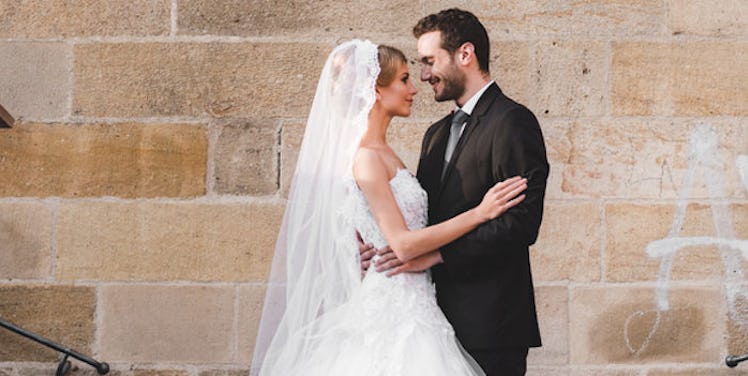
Why The Most Important Part Of Conflict Resolution Is True Reconciliation
Fights occur in every relationship — whether familial, platonic or romantic — because no one agrees with everything loved ones say and do. It’s simply human nature.
Fights can start over pretty much anything, and sometimes, they are resolved shortly after they begin. But then, there are some that linger and still hurt, long after the initial blows have been taken and you've deposited your words of anger.
The realization then comes that action has to be taken to fix the situation, so, how do you proceed?
The common initial reaction is to forgive and forget because it's just a fight so we should all play nice and move forward. But in reality, that never feels like enough.
You can forgive someone and feel as if you're moving forward with your life but are you both honestly moving on?
Or, do we bury issues into a deeper place, simply adjusting in order to live our daily lives? Arguably, we never truly move on from issues until we hash it out with the other person. A divide will always exist and will keep deepening for years to come.
According to Merriam Webster’s definition of "forgiveness," anger and resentment is something we simply stop feeling. But, does it stop on its own or is it a conscious choice to stop?
Frankly, the only true pathway toward forgiveness is reconciliation, which is the act of both opposing parties choosing to meet in order to find common ground to move forward.
Forgiveness cannot happen with reconciliation because the issue never truly absolves from your heart and mind until you face it head on.
Reconciliation is hard because of the associated vulnerability of two people coming together, both admitting that there are cracks in the relationship, but most importantly, both acknowledging that change must occur.
I consider myself to be an honest person, especially with my feelings. There's usually little to no doubt regarding what I think of a situation.
Some disagreements unfortunately lead to no closure; you’re just left hanging in suspension of what has happened, not knowing what will happen. Neither party will fire that illuminating shot because neither wants to feel the repercussions that come with emotional warfare.
Therefore, it’s vital to remember that even when you're honest and open to closure, there is still the possibility of resistance. It has taken me a few years to understand this, but just recognize, others' resistance does not mean you are not worth reconciliation.
When someone refuses reconciliation, it is because he or she is afraid of his or her own vulnerability and sometimes, even afraid to admit personal wrongdoings.
Emotional growth is so difficult because it effects real change in us as individuals because relationships are made up of more than one opinion.
It is not a sign of weakness to reach out for answers. Plus, doing so could save the relationship you have with another. If you’re wondering whether or not to pursue saving a relationship,
Be brave enough to start a conversation that matters. — Dau Voire